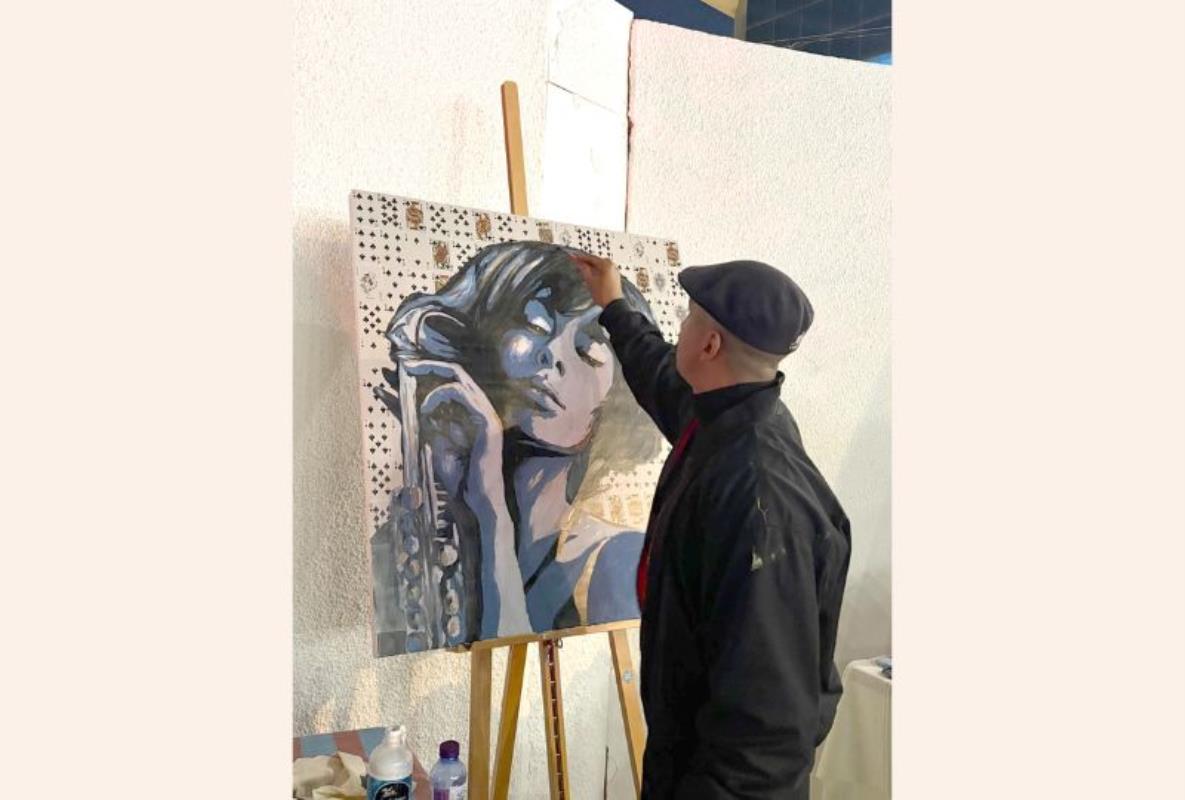
Bob, a name forgettable, much like the man who bore it. Small, insecure, and devoid of charm, Bob had grown up in the shadow of everyone around him. He was the kind of person whose absence was rarely noticed and whose presence was barely registered.
In school, Bob was invisible. Teachers skimmed over him during roll call, their voices faltering as they tried to remember who he was. He spent most of his days in silence, shrinking into himself, as though he could will his unremarkable existence into something quieter, something less noticeable.
As adulthood arrived, Bob's insignificance only deepened. He drifted aimlessly from one unimpressive job to the next. Office cubicles swallowed him whole, his meek demeanor keeping him trapped in roles where mediocrity was tolerated but never rewarded. Cowardly and conflict-averse, he avoided taking risks of any kind. Promotions went to others, while Bob stayed behind, shrinking further into his shrinking world. Eventually, his lack of initiative caught up with him. He was fired. Not with drama or fanfare—just a quiet meeting, and a severance check.
But Bob couldn’t bear to admit defeat. Every morning, he still dressed for work. He would wander the streets aimlessly, blending into the background as if he were made of shadow. It was a life of pretending—to strangers, to neighbors, to himself—that he had somewhere to go, someone to be.
When his savings ran dry, Bob opened a small shop that sold bath mats. The shop gave Bob something to do. The emptiness made him sign up for a photography class at the local community center. Bob had no interest in photography. The class was full of strangers who spoke to him, even if only in passing. “Could you hand me that lens, Bob?” “Hey, Bob, nice shot!” They said his name. For Bob, that was enough.
One evening, the instructor asked for volunteers to photocopy some course materials. Bob’s hand shot up before he knew what he was doing.
“Sure, Bob,” the instructor said. “Thanks for stepping up.”
The simple act of making copies became Bob’s new purpose. He spent hours at the machine, carefully aligning pages, ensuring each sheet came out pristine. “You did a great job with these, Bob,” a classmate said once, flipping through the neatly stapled packet.
Bob smiled, his chest swelling with a rare and fleeting pride. Praise had never come easily to him, and this tiny acknowledgment felt like a spotlight shining on his otherwise dim life. He began volunteering for every copying task. Soon, he started carrying spare toner and reams of paper in his bag, just in case the class copier ran out.
When the photography course ended, Bob felt adrift again. But he couldn’t let go of that feeling—that small sense of usefulness. So he invented new reasons to photocopy. He began replicating random documents he found: outdated manuals, flyers, handwritten notes. He filled box after box with paper, convinced he was preserving something important, though he couldn’t quite say what.
His obsession grew. He started mailing the photocopies to people he barely remembered—a former coworker from a job long gone, an old landlord, a cousin he hadn’t spoken to in years. Bob chose FedEx for deliveries because he liked the official air it gave to his packages. Surely, he thought, someone out there would appreciate the effort, the care, the attention to detail.
Most recipients discarded the packages without even opening them, baffled by the unsolicited mail. But Bob never knew. In his mind, he had become indispensable—a courier of something meaningful, a link in an invisible chain that no one but he could see.
The years slipped by. Bob spent his days hunched over his copier, filling his empty hours with the faint click and hum of the machine. His world shrank to the size of a print tray. One cold evening, as Bob carried a heavy stack of photocopies to the post office, he tripped on a crack in the sidewalk. The papers slipped from his hands, scattering like dead leaves across the pavement. He scrambled after them, his breath ragged in the icy air, his fingers trembling as they tried to smooth the crumpled pages. People walked past him without stopping, their footsteps blending into the distant rumble of cars. No one noticed. No one cared.
For the first time, Bob felt the crushing weight of his insignificance. It bore down on him like a stone, heavier than the papers he couldn’t gather.
The next day, Bob closed his shop. He disappeared from the neighborhood, leaving behind nothing but a dusty storefront and a half-empty box of bath mats. His absence went unnoticed, his name forgotten. It was as though Bob had never been there at all.































































